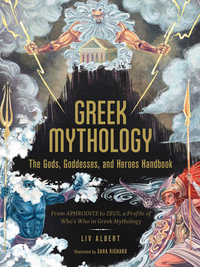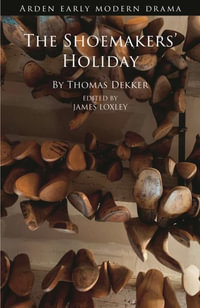Inaugurating a major new series, successor to the Oxford History of English Literature but excitingly new in its emphasis on 'literary history', this volume covers the flowering of Victorian literature, from the decade when Tennyson started writing In Memoriam and Darwin embarked on the Beagle to the publication of Hardy's first great novels and the death of George Eliot.The Victorian era produced a literature of diversity and experimentation,
engaged with powerful controversies and heartfelt arguments that lie at the centre of the formation of the modern world. It has often been misrepresented, either as an age of dull and rigid certainty
or one of anxious and depressive morbidity, but what distinguishes the writing of the period - from its origins in the 1830s to its crisis point around 1880 - is its power of serious inquiry. It poses questions about the relation between society and the individual, the rival claims of market and morality, the form and function of democracy, and, above all, the existence or non-existence of God and the purposes of human life. Such concerns make this a time in which literature has a new urgency
and vitality, and lies close to the heart of a culminating crisis of the Western conscience.The series will enlighten and inspire not only everyone studying, teaching, and
researching in English Literature, but all keen readers of English fiction.
Industry Reviews
`Review from previous edition Highly impressive.'
The Tennyson Research Bulletin
`The Victorians, one of the first volumes to appear in the new series, is a brilliant book. It would be a pity if contemporary scepticism about literary history meant that Philip Davis doesn't get the credit he deserves for dealing in such a masterly way with the vast quantity of material he tackles ... Anyone with a serious interest in the period will find it immensely rewarding.'
Charlotte Mitchell, The Spectator
`OELH may be an anagram of its forbear OHEL, but its agenda is very different. These are not survey volumes, and they historicize and extend the boundaries of the literary, often through attention to the impact of institutions and institutional thought on literary production.'
TLS
`Is it possible to contain the literary history of the Victorians within a single volume? Philip Davis has risen to the challenge with passionate energy. Authors, texts, ideas and observations crowd the pages of this dense book ... Running through Philip Davis's scholarship is a winningly partisan advocacy of the moral seriousness of Victorian writing. He does not stand aloof from the challenges he describes. The result is a book that animates a bank of
information with the force of personal commitment. It will stand as a persuasive affirmation of why the Victorians are still worth reading.'
Dinah Birch, Times Literary Supplement
`This is an imaginative, penetrating, often idiosyncratic history, written with brio ... Davis has written a book of breathtaking depth as well as breadth.'
Ben Schwarz, Atlantic Monthly
`The intelligent and discriminating overview presented by this early volume bodes well for the overall quality of the [Oxford English Literary History] series. Davis presents a neat survey of the key social, economic, and intellectual trends which shaped the Victorian periods literature. The volume is especially noteworthy for the generous place granted to the voices of contemporary writers and thinkers.'
Virginia Quarterly Review
`[A] Magnificent work of literary engagement and partisanship ... The development and mission of realism in the novel make up only one of the areas on which Davis sheds light, and he has marvelous chapters on nature, mind, religion, publishing, theatre, and poetry. His prose possesses an insistent spiritual vigor and is free of the ham-fisted parlance and empty cunning of "lit-crit".'
Katherine Powers, Boston Globe
























